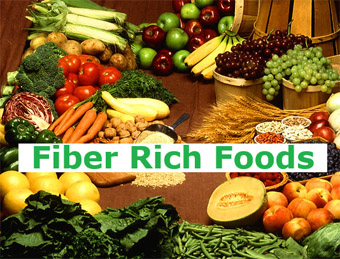How important is fiber in the diet?
Dietary fiber is the indigestible part of plant foods that passes through the digestive system, offering many health benefits. Fiber is essential for maintaining overall health, yet many people fall short of the recommended daily intake.

Types of dietary fiber
Dietary fibers comes in two main types, each with unique functions:
✅ Soluble Fiber: Soluble fiber dissolves in water to form a gel-like substance. Examples include Beta-glucan, Pectin and certain forms of Hemicellulose. Some common foods rich in soluble fiber are in oats, barley, beans, apples, citrus fruits, and psyllium.
- Helps lower blood cholesterol and glucose levels.
- Slows digestion, making you feel full longer.
✅ Insoluble Fiber: Does not dissolve in water and adds bulk to stool. Examples include- Cellulose and some forms of hemicellulose. It is found in whole wheat, brown rice, vegetables, nuts, and seeds.
- Supports digestive health by increasing stool bulk
- Promoting easier passage of food through the intestines. and,
- Helps regular bowel movements and prevents constipation.
✅ Fermentable Fiber (also called Prebiotic Fiber): It can be either soluble or insoluble. Inulin is a type of soluble, fermentable fiber and a prebiotic, meaning it feeds the beneficial bacteria in your gut. It is naturally found in many plant-based foods such as chicory root, Jerusalem artichokes, onions, garlic, leeks, bananas, and asparagus.
- When consumed, inulin is not digested in the stomach or small intestine. Instead, it travels to the colon, where it is fermented by gut bacteria. This fermentation process produces short-chain fatty acids (SCFAs), which support gut health, reduce inflammation, and may help strengthen the immune system.
Health Benefits of dietary fibers:
✅ Lowers Cholesterol: Dietary fibers in the gut binds to cholesterol-rich bile acids and removes them from the body, helping reduce total and LDL (“bad”) cholesterol.✅ Supports Heart Health: By lowering cholesterol and improving blood flow, it helps reduce the risk of heart disease.
✅ Stabilizes Blood Sugar: It slows down digestion and the absorption of carbohydrates, leading to better blood sugar control.
✅ Boosts Immunity: In yeast and mushrooms, dietary fibers like beta-glucan, can stimulate immune cells like macrophages, enhancing the body’s defense mechanisms.
✅ Promotes Satiety and Weight Control: The gel-forming nature of beta-glucan makes you feel full longer, which may help reduce calorie intake.
✅ Prebiotic function: It supports a healthy gut microbiome, feeding the beneficial bacteria in the colon that produce compounds linked to reduce inflammation like chron's disease and inflammatory bowel disease (IBD).
✅ Protects from cancer: High-fiber diets are also associated with a reduced risk of colorectal cancer and other chronic diseases.
The recommended daily intake of dietary fiber varies by age and sex:
- Men (under 50 years): 38 grams per day
- Women (under 50 years): 25 grams per day
- Men (50 years and older): 30 grams per day
- Women (50 years and older): 21 grams per day
These values are based on general health guidelines (such as those from the U.S. Institute of Medicine) and aim to support heart, digestive, and metabolic health. Most people consume far less than the recommended amount.
Keynote
In summary, fiber is a powerhouse nutrient that supports heart health, digestive function, metabolic balance, and longevity. Including foods like oatmeal daily is a simple yet impactful way to boost fiber intake and overall wellness.
Read further on:
≺≺ Diet and Constipation: The Key Connection.
≺≺ Health Benefits of Ancient Grains You Need to Know
≺≺ Cholesterol: What Does Diet Have to Do with It?
≺≺ Is Plant-Based Protein the Key to a Longer, Stronger Life?
≺≺ What foods can lower prostate cancer risk?
≺≺ Is organic food really healthier?
≺≺ What are the four enemies of blood sugar?
≺≺ What foods can lower prostate cancer risk?
≺≺ What can I do to supercharge my green tea?
≺≺ Why should I combine Avocados and Tomatoes?
≺≺ Does my social circle impact my weight?
≺≺ What happens to my blood vessels when I gain weight?
≺≺ What are the four enemies of blood sugar?
≻≻ Watch this page for more such informative articles on Health, Nutrition, and Wellness.
≻≻-Back to Home page.
Further reading (External Links opens in new window):
≺≺- National Library of Medicine - Foods high in fiber: Boost your health with fiber-rich foods.